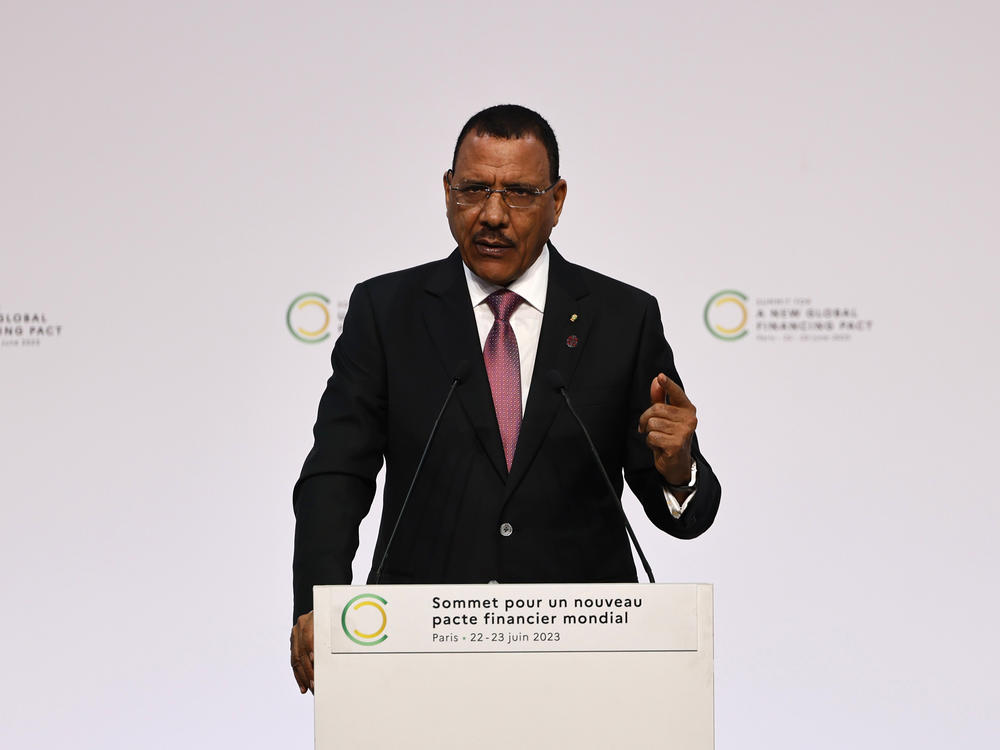Section Branding
Header Content
Niger's presidential guard has detained President Bazoum, raising fears of a coup
Primary Content
Updated July 26, 2023 at 12:45 PM ET
Soldiers from Niger's presidential guard have blockaded the presidential palace and detained the President Mohamed Bazoum, in what could be an attempted coup in the West African country.
President Bazoum's official account tweeted that some elements of the presidential guard were behind an "anti-Republican demonstration" but failed to failed to gain the support of the armed forces and national guard. The post has since been deleted.
The soldiers' demands remained unclear.
The United States and many other countries are raising concern about the situation in Niger.
Regional bloc the Economic Community of West African States condemned what it called "the attempted coup d'etat" and called for Bazoum's release, pledging to help hold those involved responsible.
The chair of the African Union and a top foreign affairs official from the European Union also condemned the actions against Niger's leader.
A statement from White House national security adviser Jake Sullivan called Niger a "critical partner" and said: "We strongly condemn any effort to detain or subvert the functioning of Niger's democratically elected government, led by President Bazoum. We specifically urge elements of the presidential guard to release President Bazoum from detention and refrain from violence."
The United Nations secretary general issued a statement condemning any effort to seize power by force and to undermine democratic government, peace and stability in Niger.
Niger has had four coups since gaining independence from France in 1960 and numerous attempted takeovers, including against Bazoum.
In recent years, there has been a resurgence of attempted coups in the African region known as the Sahel, where countries are battling Islamist insurgencies.
Emmanuel Akinwotu reported from Lagos, Nigeria. Michele Kelemen contributed reporting from Washington, D.C.
Copyright 2023 NPR. To see more, visit https://www.npr.org.

